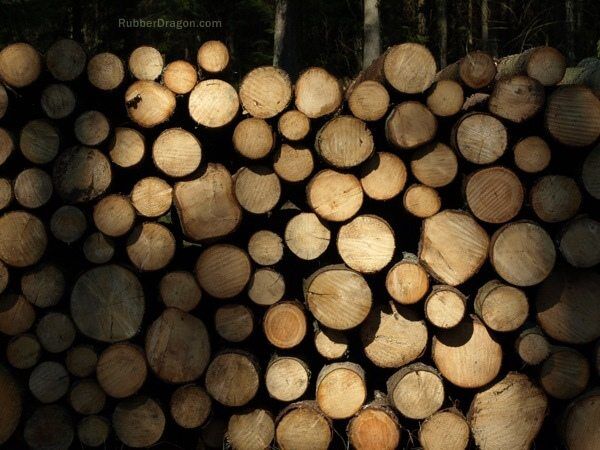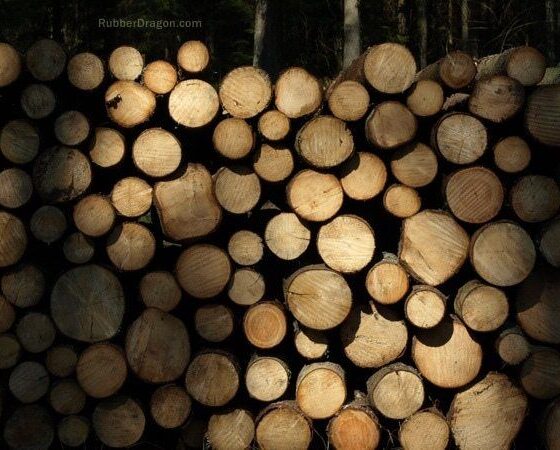

Environment
Up To Two Thirds Of UK Furniture Retailers Could Be Damaging Forests
A new report, published today by WWF-UK, has looked at business operations of 74 of the most prominent UK furniture retailers.
The report, entitled ‘Are you Sitting Comfortably? Sustainable Timber Sourcing and the UK Furniture Industry’, has found that two thirds of UK furniture retailers could be failing to have robust sustainable sourcing policies for the procurement of timber used for their furniture, and share no performance information to confirm it is sustainable.
Of the retailers assessed 68% have either no published policy or any other credible sourcing statement, suggesting that they do not see the need for responsible sourcing of timber, nor are willing to provide any information to support any customer interest in environmental matters. These retailers include some prominent brand names such as Laura Ashley and Oak Furnitureland.
However, 22% of the retailers are making good progress or show industry-leading performance. These include DIY chains such as B&Q, Wickes, and specialist retailers like Magnet, Warren Evans, and Office Depot. Others have achieved a rating of ‘progress’, indicating they are making good progress against strong policy commitments; including Argos, and Ikea.
Julia Young, Global Forest and Trade Network Manager for WWF-UK commented:
“UK furniture retailers could be unwittingly destroying forest resources due to their lack of clear commitments to sustainable sourcing of timber for their products. Some of the retailers who featured in our 2015 Timber Scorecard, have taken little or no action to get to grips with the sustainable forest trade agenda, despite having significant reliance on such actions to maintain supply of timber to their own businesses in the long term.
“Furniture retailers need to understand the nature of their trade better, and appreciate the role they can play in making sure it is a sustainable one for forests.
“As the Living Planet Report has recently highlighted, human activity has resulted in massive habitat loss and degradation. Without good sourcing procedures, forest loss and degradation will only get worse.
“Retailers can not only reduce these risks but also enhance their reputation by engaging with the issue and by publishing and pursuing a credible timber sourcing policy. WWF-UK will produce its next wider Timber Scorecard in 2017, and we hope these companies will make dramatic improvements ahead of this.”
The report notes that the greatest challenge relates to the importing of finished furniture from outside the EU, particularly where the products do not fall within the current scope of the EU Timber Regulation. The report identified €4.1 billion of UK imports of which 59% were from outside the EU. China provides 42% of all relevant UK furniture imports, followed by Italy (15%), Poland (10%), Vietnam (8%) and Germany (7%). However, the import partner is not necessarily the timber’s country of origin. For example, for Poland only 42% of the imported oak is from the EU while over half is from Ukraine with some from Bosnia and Russia.
Total furniture imports from ‘high risk’ countries – those with recognised illegal logging and trade issues – are valued at €1.9 billion (600,000 tonnes) and include China, Vietnam, Malaysia, Brazil and Indonesia.
The report outlines key recommendations for all furniture retailers to follow to build up sustainable practices that will not only reduce their business risk, but enhance their reputation. These include:
o Publishing a responsible timber sourcing policy
o Providing supplier guidance notes or training to ensure that all supply chain participants are aware of requirements
o Get third-party verification such as FSC.
o Communicate policies to all stakeholders
o Seek support from suppliers, industry bodies, environmental groups and competitors to help source responsibly.


 Environment12 months ago
Environment12 months agoAre Polymer Banknotes: an Eco-Friendly Trend or a Groundswell?

 Features11 months ago
Features11 months agoEco-Friendly Cryptocurrencies: Sustainable Investment Choices

 Features12 months ago
Features12 months agoEco-Friendly Crypto Traders Must Find the Right Exchange

 Energy11 months ago
Energy11 months agoThe Growing Role of Solar Panels in Ireland’s Energy Future





























